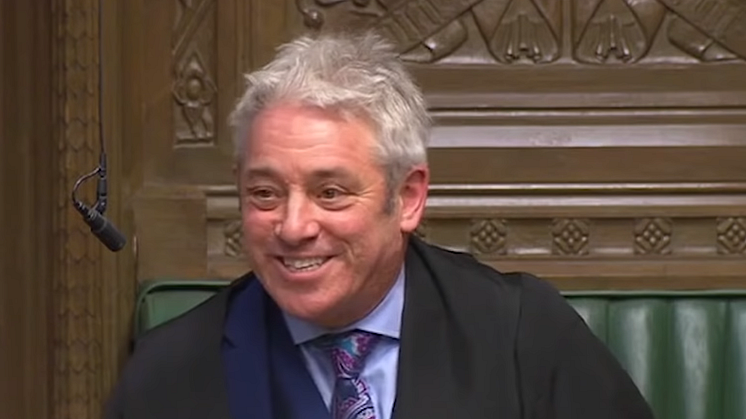
Blog post -
Six communications skills to learn from John Bercow
In the whole Brexit chaos, the person who has impressed me the most is the Speaker of the House of Commons, John Bercow. He has ensured that the agenda and the rules of the House have been followed, that parliamentarians wishing to speak got their turn, and he has waded into the frequently unruly debate to keep "OOORRDEERRRR!"
Clearly he is not universally liked. Moves are afoot to remove him, with the Conservative Party breaking with tradition to field another candidate to stand against him.
Further, few senior business leaders will ever have to play the role he does (arguably, their positions are anyway more akin to that of the Prime Minister), and they would do untold damage to morale if they ever treated staff in this way.
Similarly, Communications Directors in Asia are unlikely to ever have to control a scrum of journalists like Bercow controls the House. Besides, to put reporters in their place like Bercow does parliamentarians would likely put you in the same bucket as Sarah Huckabee Sanders, whose performance as White House Press Secretary will surely one day go down as contributing to the demise of American democracy. Democracy is all about letting people have their say, and a press free to ask any question it likes, and to be seen to be free to ask any question it likes, is part of that.
But if you have consumed as many YouTube videos of Bercow's performance as I have you are likely to have developed a fondness for his style, and I have tried to distill his edicts "from a sedentary position", as Bercow would say, into a set of learnings for business leaders and communications professionals.
- Establish and follow rules of engagement – Bercow's approach rests on centuries-old rules and conventions. Newly elected members will be acutely aware of that, and subject themselves to them when they take their seats on the green leather benches. You will be hard pressed to establish such rules of engagement in a press briefing. But if you start today, consistent application will likely develop an expectation among reporters that your media briefings follow a certain style.
- Be prepared – Whether you agree with Bercow’s decisions or not, he is meticulously prepared to the extent he doesn’t have to back down. He draws on the Clerk of the House to provide guidance in ways business leaders should be able to draw on their communications staff.
- Indefatigable politeness – Even when scolding Members of the House, Bercow remains unfailingly polite. He addresses Members by their constituencies, full names, or titles. It might go a bit far to address journalists by "Mr"/"Ms", or "The Senior Reporter from The Straits Times". But it is more difficult to hold his decisions against him when he is always nice to people. Well, almost always.
- Impartiality – Now, you and various Members of the House might disagree on how effective he has been, but it is clear he has tried. Bercow makes an effort to treat everyone equally. Speakers of the House of Commons usually resign their party membership to underscore this. Further, Bercow is at pains to share the opportunity around, and spoke at his most recent ascension to the Speakers' chair about his intent to have backbenchers heard. Similarly, you would want to ensure all members of the media attending your briefings had a similar opportunity to ask questions. That includes reporters from less notable trade publications, and those mainstream reporters who have given your organization a tough time with their stories.
- Manage interruptions – Bercow rarely gets drawn into arguments with Members shouting out to him. Knowing that their microphones are off, and his is the only one that’s on, he simply restarts his sentence. Don’t get drawn into tit-for-tat debates.
- Silence – The most underutilised of vocal skills. Some of Bercow’s most powerful moments are when he pauses meaningfully, or remains silent altogether. Something like “I'm saying it, but I'm not saying it”.
Whatever conflict you face and personalities you have to deal with in your organisation, it would be a silver lining to be remembered for managing them with the aplomb of John Bercow.
Debate the subject with me in the "House of Commentary" below.
I will now resume my seat.
